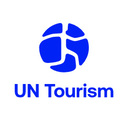UNWTO Seminar addresses tourism development in the Russian regions of the Silk Road
The potential of tourism itineraries and products in the Russian regions of Silk Road has centred the debates of a Seminar conducted last 12 March in Moscow by UNWTO. The Seminar was held in the framework of the UNWTO Silk Road Programme in cooperation with the Russian Federal Agency for Tourism and the Intourmarket Tourism Fair.
The relevance of Silk Road tourism itineraries and products in Russia as well as marketing and branding opportunities received major attention during the Seminar facilitated in Moscow by the UNWTO Silk Road Programme. The event was attended by representatives of the Russian regions and tourism stakeholders from the public and private sector.
Moderated by Leonid Gelibterman, President of the International Center of Wine and Gastronomy of the Russian Federation, the event was an excellent platform to exchange and showcase best practices.
The regions of Astrakhan and Caucasus, and the Republics of Dagestan, Tatarstan, Altai and Buryatia, showcased innovative tourism offers based on their Silk Road heritage. Gastronomy, natural splendor and intangible heritage were identified as key elements that will drive the development of Silk Road tourism in Russia.
One of the major conclusions of the Seminar was the need to continue working towards the establishment of a trans-regional cooperation framework for the Russian regions on the Silk Road. This and other topics will be at the core of the International Conference on the Gastronomic Routes of the Silk Road to be held in Astrakhan, Russia, next July.
The UNWTO Silk Road Programme is a collaborative initiative designed to enhance sustainable tourism development along the historic Silk Road routes. It aims to maximize the benefits of tourism development for local Silk Road communities, while stimulating investment and promoting the conservation of the route's natural and cultural heritage.
Currently the Silk Road Programme engages 33 UNWTO Members States, UN agencies, UNWTO Affiliate Members, as well as an extensive network of private sector stakeholders.
The 7th UNWTO Silk Road Task Force meeting will be held in Valencia, Spain on 30-31 March 2017.
About UN Tourism
The World Tourism Organization (UN Tourism) is the United Nations agency responsible for the promotion of responsible, sustainable and universally accessible tourism.
As the leading international organization in the field of tourism, UN Tourism promotes tourism as a driver of economic growth, inclusive development and environmental sustainability and offers leadership and support to the sector in advancing knowledge and tourism policies worldwide.
Our Priorities
Mainstreaming tourism in the global agenda: Advocating the value of tourism as a driver of socio-economic growth and development, its inclusion as a priority in national and international policies and the need to create a level playing field for the sector to develop and prosper.
Promoting sustainable tourism development: Supporting sustainable tourism policies and practices: policies which make optimal use of environmental resources, respect the socio-cultural authenticity of host communities and provide socio-economic benefits for all.
Fostering knowledge, education and capacity building: Supporting countries to assess and address their needs in education and training, as well as providing networks for knowledge creation and exchange.
Improving tourism competitiveness: Improving UN Tourism Members' competitiveness through knowledge creation and exchange, human resources development and the promotion of excellence in areas such as policy planning, statistics and market trends, sustainable tourism development, marketing and promotion, product development and risk and crisis management.
Advancing tourism's contribution to poverty reduction and development: Maximizing the contribution of tourism to poverty reduction and achieving the SDGs by making tourism work as a tool for development and promoting the inclusion of tourism in the development agenda.
Building partnerships: Engaging with the private sector, regional and local tourism organizations, academia and research institutions, civil society and the UN system to build a more sustainable, responsible and competitive tourism sector.
Our Structure
Members: An intergovernmental organization, UN Tourism has 160 Member States, 6 Associate Members, 2 Observers and over 500 Affiliate Members.
Organs: The General Assembly is the supreme organ of the Organization. The Executive Council take all measures, in consultation with the Secretary-General, for the implementation of the decisions and recommendations of the General Assembly and reports to the Assembly.
Secretariat: UN Tourism headquarters are based in Madrid, Spain. The Secretariat is led by the Secretary-General and organized into departments covering issues such as sustainability, education, tourism trends and marketing, sustainable development, statistics and the Tourism Satellite Account (TSA), destination management, ethics and risk and crisis management. The Technical Cooperation and Silk Road Department carries out development projects in over 100 countries worldwide, while the Regional Departments for Africa, the Americas, Asia and the Pacific, Europe and the Middle East serve as the link between UN Tourism and its 160 Member States. The Affiliate Members Department represents UN Tourism's 500 plus Affiliate members.
Rut Gómez Sobrino
Principal Media Officer
(+34) 91 567 81 60
UN Tourism
